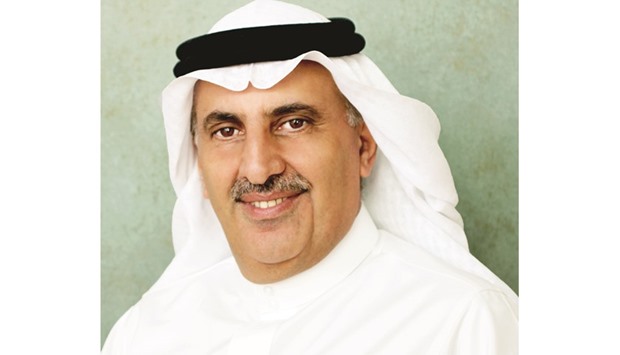With 18.3mn tonnes of annual capacity, Qatar holds 13.4% of the GCC’s petrochemicals manufacturing capabilities, a figure that is second only to Saudi Arabia, according to Gulf Petrochemicals and Chemicals Association (GPCA) secretary general Dr Abdulwahab al-Sadoun.
Qatar’s petchem product portfolio was dominated by fertilisers and polymers, namely polyethylene, al-Sadoun said in an interview with Gulf Times.
As with other Arabian Gulf states, Qatar also has a keen focus towards economic diversification, with non-oil GDP growth coming in from construction, financial services, trade and hospitality - sectors that are developing to support the rapid population growth in the country, he said.
The manufacturing industry represented 10% of Qatar’s GDP in 2014, of which petrochemicals accounted for 44% of contributions. In fact, the growth in chemical output in the preceding decade contributed $9.3bn to Qatar, al-Sadoun said.
As the region’s largest petrochemical producer, Saudi Arabia’s manufacturing portfolio comprised 63% of the region’s chemical portfolio and earned $68.3bn, a GPCA report last year said.
Al-Sadoun said that over the last decade, the GCC’s petrochemical industry had been a “unique” success story.
“With massive investment towards expanding capacity, the manufacturing capabilities of the petrochemicals industry in the Arabian Gulf have more than doubled from 65.8mn tons in 2006 to 136.2mn tons in 2014. The output of GCC petrochemical products in 2014 was in the $415bn range, or 32% of the region’s manufacturing sector’s contribution to GDP - an impressive achievement for an industry that was born just four decades ago,” al-Sadoun pointed out.
For the petrochemical sector in the Middle East, the drop in the oil prices has flattened the global industry’s cost curve. This, in turn, has led to a drop in the commodity products prices and subsequently resulted in a 20-30% margin reduction for the chemical producers in the GCC region, he said.
However, the low prices on one hand and the growing world population in the other is leading to an increase in global demand for petrochemicals, which is almost double the global economy’s growth rate.
Keeping this in mind, GPCA expects the petrochemicals industry to grow a respectable 4% this year, buffered by a clear pipeline of megaprojects that are expected to come on-stream, al-Sadoun said.
A GPCA study shows the GCC’s petrochemical sector attracted considerable number of GCC nationals into its workforce in 2014, with a nationalisation rate of 67% among GPCA member companies.
The Gulf Petrochemicals and Chemicals Association represents the downstream hydrocarbon industry in the Arabian Gulf region. Established in 2006, the association voices the common interests of more than 240 member companies from the chemical and allied industries, accounting for over 95% of chemical output in the GCC region.
The industry makes up the second largest manufacturing sector in the region, producing up to nearly $110bn worth of products a year.

Dr Abdulwahab al-Sadoun:GPCA secretary general
